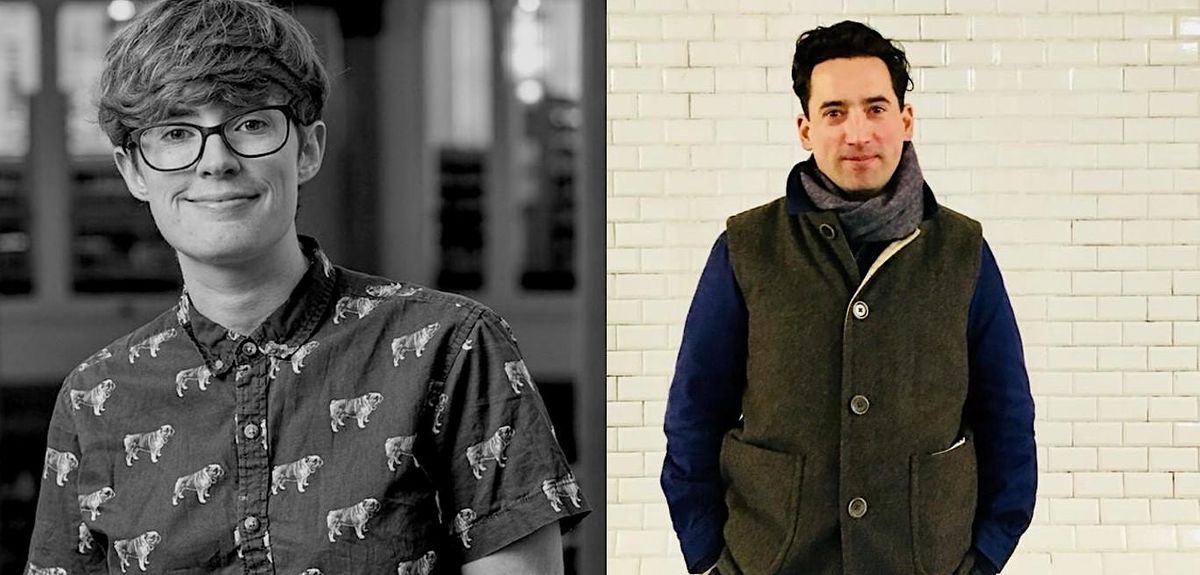Research@Central Seminar: Dr Sarah Bartley and Dr Tom Six
Schedule
Thu Mar 23 2023 at 06:00 pm to 07:30 pm
Location
Royal Central School of Speech and Drama | London, EN

About this Event
Dr Sarah Bartley
Class and Carceral Performance in the Work of Clean Break Theatre Company
The relationship between class and crime in the United Kingdom is complex. As the economic determinants of crime model predicts, it is those with least economically advantaged backgrounds who are most likely to be incarcerated in UK prisons (Sim, 2009). Concurrently, evidence shows that increases in economic inequality ‘appear to have been linked with preferences for greater punitive sanctions for those found guilty of committing a crime’ (Duque and McKnight, 2019: 31). Material inequality and discriminatory social stratifications are clearly active in the carceral system, yet class analyses remain largely absent from performance scholarship that examines Pr*son arts practice and representations of crime onstage.
In this paper, I examine three Clean Break productions, each of which offer distinct perspectives on what performance offers to critical engagements with poverty and criminalisation in the UK. Through an analysis of Pests (2014), and [BLANK] (2019), I point to poverty, economic dependency, and class relations as recurrent theme in Clean Break performances over the past decade. I illuminate the multiple approaches deployed by the company to represent the complexities and constituent oppressions embedded in the relationship between class and criminality. I then turn to Meal Ticket (2012), to attend to the ways material experiences of class shape participation in community practices particularly acutely when performers are economically dispossessed and socially marginalised.
This chapter offers a class analysis of Pr*son arts practices to expose the ways in which performance intersects with, replicates, or challenges, the criminalisation of poverty; and to interrogate the material considerations of participation that orbit such practices. I explore both how class manifests in cultural representations of criminality and also consider how material inequalities and structural dispossession impact the ways in which arts organisations can engage participants.
Sarah Bartley is a community arts practitioner and Senior Lecturer in Community Performance and Applied Theatre at Central School of Speech and Drama. In her research and practice, she is interested in exploring the intersections of participation and policy at play within socially engaged performance. Sarah’s previous publications explore artistic representations of the welfare state, the resurgence of people’s theatres, and documenting the histories of Pr*son arts practice in the UK. She is a co-investigator on both the AHRC funded project ‘Clean Break: Women, Theatre, Organisation and the Criminal Justice System' (2019-2023) and British Academic and Nuffield Trust funded project ‘Transformative Justice, Women with Conviction(s) and Uniting Communities’ (2022-2024). She published her monograph Performing Welfare: Applied Theatre, Unemployment, and Economies of Participation in 2020.
Dr Tom Six
White Russians: Chekhov, Racialization and Modernity in the Post-Colonial Anglo-American Theatre
Speaking in 1994, the director Jatinder Verma complained that British theatre audiences had ‘Chekhov thrown down our throats ad nauseam’ and asked a pertinent question: ‘how come Chekhov has become so quintessentially English?’ He offered a simple answer to his own question: ‘we have’, he said, ‘to think of race’. This paper will argue that Verma was right, and the canonical position attained by Chekhov in the Anglo-American theatre has been primarily a consequence of the particular appeal of his plays to the position constructed for the white subject of modernity. Furthermore, I will show how Chekhov’s plays offer a case study of the rear-guard action mounted on cultural terrain to defend the supremacy of whiteness in a decolonizing world, namely racialization: the assemblage of flexible and contingent processes whereby racial groups continue to be produced and reproduced. To develop this argument, I will return to the early nineties, and Louis Malle’s film Vanya on 42nd Street (1992), from which point the paper will travel back and then forwards in time, mapping first the co-option of Chekhov’s plays into mainstream white culture in the thirty years before Malle’s film, and then the increasingly frequent meetings between racially minoritized people and the cultural dynamics of Anglo-American Chekhov in the thirty years since.
Where is it happening?
Royal Central School of Speech and Drama, 62-64 Eton Avenue, London, United KingdomEvent Location & Nearby Stays:
GBP 0.00
